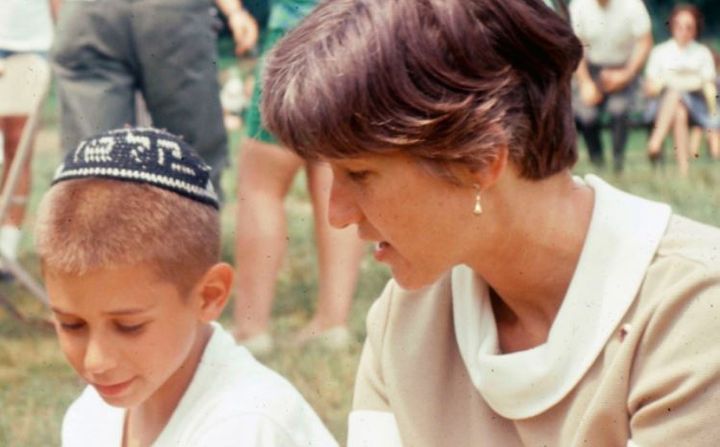As a child growing up in the peaceful and charming Upstate New York community of Binghamton, we had some unusual features in our house. One of them was a long horizontal opening in the wall between our kitchen and our breakfast room. You know how it is in the restaurants, when the cook puts down a finished plate to be delivered to the dining room, and rings the bell to let the waiter know that the dish is ready? Kinda like that.
But without the bell.
We called it, in a most utilitarian way, the “pass-through”. Unlike the cold, commercial stainless steel versions, this was nicely integrated into the warm decor of our home.
I don’t know what age I was at the time. Perhaps I was eight years old, but I could have been seven, or maybe eleven or twelve. My mother had placed small glasses of juice on the pass-through, to accompany our breakfast. One day it would be orange juice, the next it would be prune juice. In a world that has, to my knowledge, moved on from any serious prune juice consumption, I still have a warm spot in my heart for it.
With my Mom, z'l
So there I was in the breakfast room, my eight-year-old-or-maybe-twelve-year-old self talking to my mother in the kitchen through the pass-through. I don’t recall the topic of the conversation, but I remember my mother including three words: “the six million”.
Immediately, reflexively, her eyes filled with tears.
I didn’t get it. When I said those same words, my eyes remained dry. Was there something wrong with me, that my mother felt such deep, primal pain and I felt nothing?
There was so much I didn’t know at the time.
I just didn’t know.
I didn’t know that the men and women in our Shul, who spoke English with their heavy Hungarian, German and Polish accents, had scarcely two decades prior been victims of some of the worst atrocities in human history.
I just didn’t know.
I didn’t know what it was like for the generation of Jews who were fortunate enough to live in the United States during the nightmares of World War II. My parents were born in the USA, and even most of their parents before them (going as far back as the late 1800s), and they were of age during those awful war years. My father served in the US Army Air Force as a radio operator throughout the war, although he never ended up deployed overseas.
I just didn’t know what they had experienced, and how the trauma of the Holocaust invaded even their seemingly-protected American space. I didn’t know it could bring tears to one’s eyes at any given moment.
I wonder now: where were my parents when they heard the news that their brethren were being slaughtered by the millions?
Isn’t that always the question: ‘where were you when _________’?
It’s that strange quirk of human nature that we remember where we were when tragic events occur.
For my parents, it was probably ‘where were you when you heard about the attack on Pearl Harbor, or the revelations of the horrors of the Holocaust?’.
For those a generation later, it was ‘where were you when JFK was shot?’
In the 1980s, the question of the day for my generation became: ‘where were you when the Space Shuttle Challenger exploded, just a minute after liftoff?’
In the kitchen of our small Brooklyn apartment.
That was later dwarfed by: ‘where were you on 9/11 when the towers came down?’
In my office in Baltimore, with our staff glued around a small television set, watching the nightmare unfold real-time.
For those of today’s generation, there is a new ‘where were you’. There will be no forgetting where we were on Simchat Torah last year, and how we gradually became aware of the unfolding monstrosities of that day.
_______
Five decades after I wondered about the tears brimming in my mother’s eyes, I have learned a thing or two. As we continue living through this hellish war with Hamas, and increasingly with the greater evil around the world, I see how easy it can be to cry.
I see that thinking about where we were on October 7th can make us cry.
I see that thinking about our kids in Gaza, be they our own flesh and blood or just part of the collective youth of Am Yisrael fighting the battle, can make us cry.
I see that thinking about the families that have been forever scarred and diminished can make us cry.
I see that just about anything, at any random time, can make us cry.
____
If our children and grandchildren ever catch us with tears welling up in our eyes, they will wonder about it, and we will hope that they never understand the torment from which those tears spring. But we know better. If history is any indicator, they will likely dip into that same well of salty tears, and cry about a future event which will have affected them as ours has affected us. And as our parents’ affected them.
My mother passed away several years ago, but there’s something I need her to know. So I cast my eyes heavenward, peering through the pass-through between this world and beyond, and I send her a message:
I get your tears now, Mommy.
I really do.















